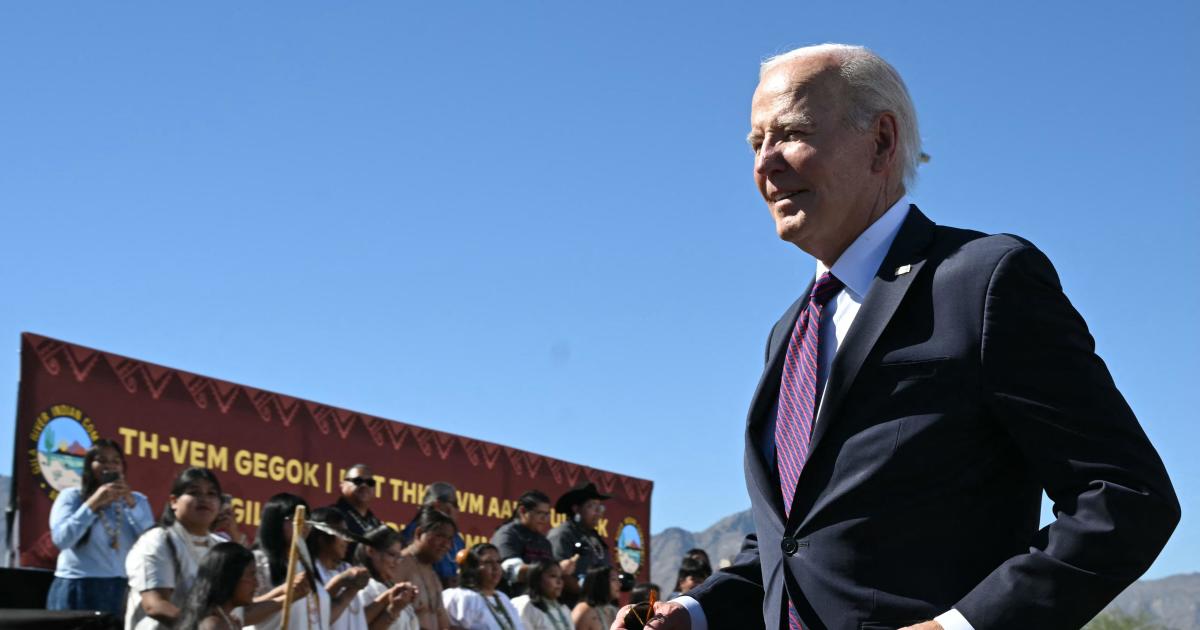President Biden made history on Friday by issuing a formal presidential apology to Native American communities for the atrocities committed against Indigenous children and their families during a 150-year era of forced federal Indian boarding schools. The president chose to deliver this apology at the Gila River Indian Community in Arizona, but it was extended to all tribal nations who had suffered for generations.
In his speech, President Biden acknowledged the dark history of the United States government’s role in establishing boarding schools from 1819 through the 1970s. These schools were meant to assimilate Alaska Native, American Indian, and Native Hawaiian children into White American culture by forcibly removing them from their families, communities, and belief systems. The president described this practice as “one of the most horrific chapters in American history” and a “sin on our soul.” He held a moment of silence for the lives lost during this era.
The president highlighted the traumatic experiences endured by Indigenous children who were taken from their families and placed in these boarding schools. Many children faced emotional, physical, and sexual abuse, and hundreds of them tragically lost their lives. Even after the passage of the Civil Rights Act in 1964, the atrocities continued, leaving lasting scars on those who survived.
President Biden expressed the gravity of his apology, stating that it was one of the most consequential things he had done in his career as president. He emphasized the honor he felt in being able to offer this apology and recognized the significance of the moment for Native American communities.
Interior Secretary Deb Haaland, the first Native American Cabinet Secretary in the United States, also shared her personal connection to this history. Her maternal grandparents were taken from their communities and placed in a Catholic boarding school at a young age, as was her great-grandfather. Haaland emphasized the widespread impact of federal Indian boarding schools on Indigenous communities, stating that the trauma inflicted by these policies and institutions continues to be felt to this day.
Haaland led the first federal investigation into the Indian federal boarding school era, which revealed disturbing findings. The investigation uncovered more than 500 deaths of American Indian, Alaska Native, and Native Hawaiian children at 19 of the federal Indian boarding schools, as well as 53 marked and unmarked burial sites at school locations across the country.
The Interior Department’s report detailed the harsh treatment endured by children in these schools, including corporal punishment such as solitary confinement, flogging, withholding food, whipping, slapping, and cuffing. Older children were sometimes forced to inflict punishment on their younger classmates, further perpetuating the cycle of abuse.
Religious institutions, including Presbyterian, Catholic, and Episcopalian organizations, were often contracted by the federal government to run these boarding schools in an attempt to assimilate Native children into White American culture. Despite these efforts, Haaland emphasized the resilience of Indigenous communities in preserving their languages, traditions, and way of life despite the government’s attempts to erase them.
As the nation reckons with this dark chapter in its history, Haaland vowed to ensure that the stories of those who suffered in Indian boarding schools are not forgotten. She emphasized the importance of acknowledging this trauma and working towards healing and reconciliation with Native American communities.
President Biden’s historic apology marks a significant step towards acknowledging and addressing the injustices committed against Indigenous peoples in the United States. By recognizing the pain and suffering caused by federal Indian boarding schools, the president and his administration are taking a crucial step towards reconciliation and healing with Native American communities.









